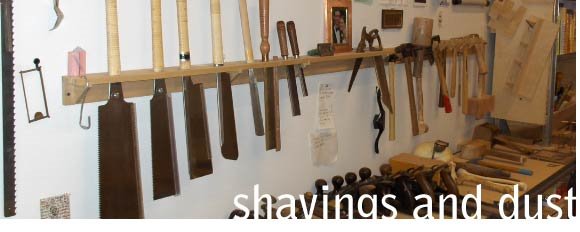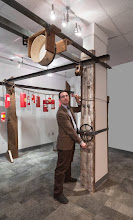the main library at SU is called the Bird Library (named after benefactor E.S.Bird). It is facing a problem that many libraries across the country are facing, apparently: Storage. No matter how big you build your library, eventually it will be filled to the brim with books, periodicals, sound media, films, et cetera, and decisions will have to be made about which books are stored and how they are stored.
As early as 1869, a fellow named John Dancer was able to photographically reduce printed text with a ratio of 160:1 using daguerreotype, which was the first step to what eventually became know as microfiche. Microfiche always seemed so magical to me when I was young. There were WHOLE BOOKS printed on these tiny tiny rectangles of plastic, and when I put them into the machine I could read them to my heart’s content. It seemed like such an efficient way to store knowledge. No need for all of this heavy paper and cardboard covers! Just print the book once and photograph it, and the entire collected works of Shakespeare can fit into a box the size of a small paperback.
When was the last time you looked at a microfiche machine? I was in the bowels of Bird library with some students and explained what one was and not one of them had ever even seen the machine, let alone used one. They laughed at the antiquated technology, which is their right, of course. The future belongs to the young. And in their world, all of this information is stored digitally somewhere in the tubes of the internet, where there is unlimited storage. For them, the idea that they would have to go to an actual building to find information is tiresome.
In talking to the librarians it came out that all the microfilm and microfiche is being “deacquisitioned,” recycled to harvest the silver that is part of the developing process. Hundreds of 50 gallon drums of microfilm were packed up and carted off to the recycling facility, in order to make room. The same is happening to hundreds of thousands of slides in the slide library.
Apparently all of the faculty are up in arms about the slides being gotten rid of, but when they are told that they can take whatever slides they consider too useful or important to throw away, they seem to never be able to find the time to come and claim them. They seem to like the idea of having those slides there, but not to have a real use for them, like that tie-dyed shirt you wore to the first Dead show you ever went to, the one where you kissed that really smelly hippy girl and you had eaten a pile of mushrooms and her patchouli made you think of dirt and you thought you were being buried alive, remember that show? Not much, but you remember the hippy chick and there is no way you are getting rid of that t shirt, just like there is no way you will ever wear it again.
Same with the slides. And the microfiche.
Libraries in general are in the midst of an existential crisis since they are no longer the main repositories of information. The number of students who visit Bird Library has dropped sharply in the last fifteen years, as more and more are doing their research on line in their dorm rooms. I myself, a lover of books and libraries, go much more rarely than I used to. Even I do a lot of research on line and a lot of my reading digitally.
The intent of this post is not to write eulogy for libraries and books. I had started out to relate a pretty small moment from today, but of course providing the context for the moment takes some doing. And writing up this context stimulates some philosophical flights of fancy: As we separate the information from the storage method, interesting things can happen. We don’t get nostalgic, particularly, about computers, for example, in the same way that we get nostalgic for, say, that tie-dyed t shirt. Items like that shirt, or my great-grandfather’s handsaw are the totemic objects that (Bachelard would tell us) store information in a more abstract way than a record or a book or a piece of microfiche. For some reason, we hang on to the shirt in a way that I did not hang on to the computer that I used to write love emails to my wife when we were first dating and she was overseas for Christmas. I have objects from that time that are very important to me, but the computer is not one of them, which I find intriguing.
Why do we feel that some storage methods are important while others are not? Why can I not bear to throw out the journals that I wrote terrible poetry in in college, when I had no desire to keep the computer that I wrote terrible poetry on in my early adult-hood? Why did I keep the dictionary that I was given when I graduated high school but not the (much bigger) dictionary that came as a CD with my last laptop? Hard to say.
Today we were in the basement of the Bird Library, talking to the person who is in charge of “deacquisitioning” books and other media to make room for new books, a diminutive woman in her early fifties, friendly, obviously kind. We were talking about the microfiche (much of which is being saved for now) and how it is getting moved, and about the microfilm, all of which got sent off for recycling. This nice woman started to weep, standing there on the vinyl tile floor, telling us about how big bins of books were getting sent to the landfill when she first got here, and how the fact is that her job is to throw away (she tries to recycle as much of it as she can) books. Throw away BOOKS.
I was nonplussed to say the least. I wanted to give her a hug, to tell her it is okay, that the information will live on, that all will be well. But it does seem like a hard job. And it is a job that requires a constant awareness that time “creeps in its petty pace from day to day…” as Macbeth reminds us. The inexorable-ness of that is pretty intimidating.
So I have been thinking about books a lot today, and about other ways that we store information, and about how hard it is to let go of the object at hand. And I have been thinking about that nice woman who is trying to get the objects to go gently into that good night, and about how raw and powerful it was to see her overcome with love for these objects, these things, these books.


2 comments:
That just makes me sad. One thing I love about libraries is that you can get lost in the stacks, picking books at random, and learning something new. One of my favorite scenes in "Pushing Daisies" is when Ned recreates Chuck's book collection in her new apartment, and it is clearly a sign of love. All is not lost though: in one of my new projects, a library is being built, and one of their main concerns is having enough shelf space for growth.
I throw away books a lot. It's a part of our job that a lot of people don't understand. I no longer need 7 copies of The Da Vinci Code! Nonetheless, don't write our eulogy yet, Zeke. Libraries survived the creation of the printing press, the CD Rom, and the internet. They're mutable, resilient, and vital to the community.
Post a Comment